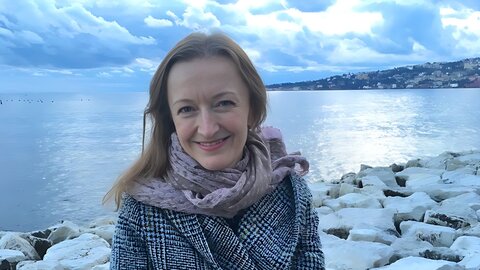Close link between gender roles and the economy

One of the indicators for how gender affects individual economic circumstances is the gender pay gap, which is determined continually in many countries. Austria shows a particularly poor performance in this analysis of income differences between women and men – also in comparison to countries with similar standards. For 2021, Statistics Austria calculated a gender pay gap in Austria of 18.8 percent, whereas the EU average in the same year was 12.7 percent.
Such an indicator, however, says little about the actual roles women and men play in the economy and how these roles are changing over time. The research of Alyssa Schneebaum from the Department of Economics at the Vienna University of Economics and Business (WU) seeks to shed light on this situation. With support from the Austrian Science Fund FWF, her project “Gender and Economy in Transition” explored the effects of legal and organizational conditions on the economic status of men and women.
“The studies show that economic processes are closely linked to gender roles – these two spheres cannot be viewed in isolation,” Schneebaum concludes. “Any measure that impinges upon people's economic circumstances must account for this fact.” The factors Schneebaum analyzes in her research include the effects of globalization, gender orientations or individual financial security through a basic income grant. “It is important to keep in mind that this is an intersectional issue; it is never just about gender alone,” says Schneebaum. “Inequality and discrimination result not only from gender, but often simultaneously from several characteristics and attributes such as age, religion or migration background.”
Education helps women to increase their wealth, but not to the same extent as it does for men. Across the EU, women earn on average 12.7 percent less than men; in Austria, the income gap is even wider at 18.8 percent.
The distribution of wealth and power in relationships
In one of the studies that she conducted within the project, the researcher examined relationships in Austria where the partners show very different socio-demographic characteristics: “What if only one partner in the relationship has a very high level of education? What if only one person has a migration background? I wanted to find out how these differences affect the distribution of wealth and decision-making power in households,” explains Schneebaum. The basis for her study was provided by data from the Household Finance and Consumption Survey (HFCS), which is collected in Austria by the Austrian National Bank (OeNB) and harmonized at EU level by the European Central Bank (ECB).
The results are sobering. “As was to be expected, there is a pronounced gender-specific wealth gap to the detriment of women,” notes Schneebaum. “The gap is greatest in couples where the man is from Austria and the woman is from a different country – a result that I found particularly interesting.” Education helps women to increase their wealth, but not to the same extent as it does for men. Schneebaum: “As a woman you really need a much higher level of education in order to compensate for the wealth gap within the relationship and catch up with the male partner.”
The survey also includes data collected from a sample of around 1,500 couples in Austria. When asked about decision-making power, two thirds of couples state that there is balance between the partners. One third of couples state, however, that there is indeed a big difference. In couples with more assets, men tend to have more decision-making power. “In this context one should always take into account that these results are based on people’s own statements and self-assessments,” warns Schneebaum.
Distribution of roles in same-sex marriages
In another study – this time based on US data – Schneebaum explored the distribution of roles in same-sex relationships. “The study was conducted following the improved legal recognition of same-sex couples in the USA, which gave them the advantage of joint tax returns, for example,” explains Schneebaum. “The outcome shows that even in these relationships a specific division of labor develops over time.” One partner may focus more on paid work than the other – which, as Schneebaum notes, cannot be explained by guiding influences such as the adoption of a child or the tax situation.
“Obviously it is marriage as such that leads to this division of labor,” says Schneebaum. Hence, one cannot exclusively blame male and female role models for possible inequalities, but the institution of marriage itself is also a factor. If the marriage breaks down, the person who had less of a working income is at a disadvantage – in terms of retirement assets, for example. “Marriage does something to us,” concludes Schneebaum. “Therefore, independent of their gender, people who want to get married should bear in mind the fact that they adopt new role models when they marry, which can have financial consequences.”
It is difficult to change norms for women, men and spouses if those norms are reproduced and reinforced continually through socialization. What is the advice Schneebaum would give to policy-makers? “I believe it would be extremely important for young people, especially girls, to get more financial education,” says the economist. “In the same way that STEM studies are now being more forcefully recommended to girls, this should also be done with financial topics. At the same time, boys should be sensitized to the fact that the female partner in a relationship can also take care of financial matters.”
Personal details
Alyssa Schneebaum is an assistant professor at the Department of Economics at the Vienna University of Economics and Business (WU). She focuses on feminist economics and gender aspects of the economy, and completed her PhD studies at the University of Massachusetts-Amherst in the USA before taking up her position at WU Vienna. She received a Hertha Firnberg Fellowship from the Austrian Science Fund FWF and the subsequent project “Gender and Economy in Transition” (2019–2022) was awarded EUR 331,000 by the FWF.
Publications
Dökmeci T., Rainer C., Schneebaum A.: Economic Security and Fertility: Evidence from the Mincome Experiment. WU Vienna University of Economics and Business. Department of Economics Working Paper Series No. 332, 2023
Zaninovic L., Bernardita C., Schneebaum, A.: How is global commerce affecting the gender composition of employment? A firm-level analysis of the effects of exposure to gender norms via trade and FDI. WU Vienna University of Economics and Business. Department of Economics Working Paper Series No. 331, 2023
Schneebaum A., Rehm M., Schuster, B.: Intra-Couple Wealth Inequality: What´s Socio-Demographics Got To Do With It?, in: European Journal of Population 2022
Schneebaum A., Badgett M. V. L.: Poverty in US Lesbian and Gay Couple Households, in: Feminist Economics 2019





